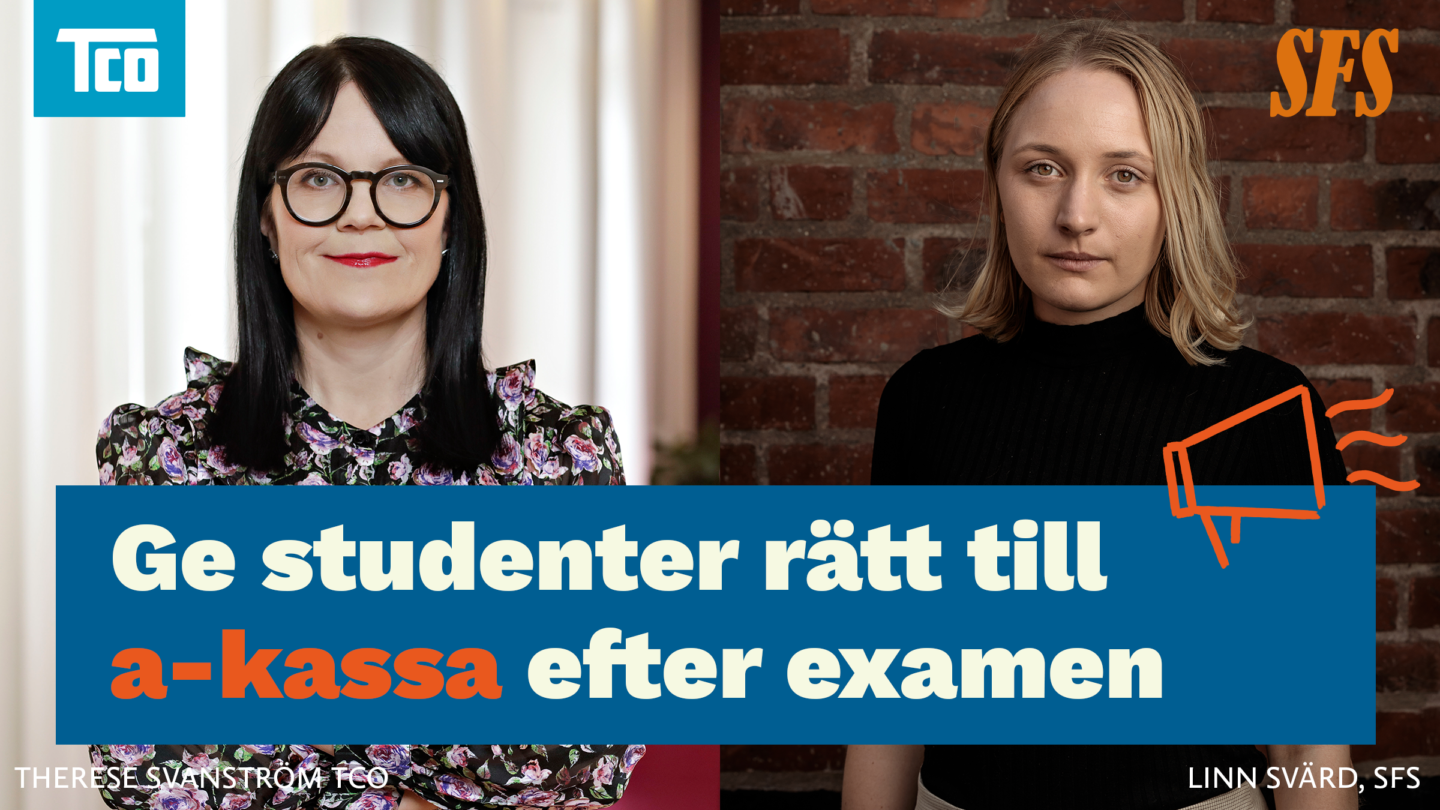DEBATE, the article was published in UNT 22 / 10-2020. Read the article on unt.se (behind the payment wall) here
Give job-seeking students a reasonable opportunity to complete their studies and apply for a job at the same time. Higher education must be encouraged. Therefore, we want to see that the unemployment insurance fund is modernized in such a way that those who have completed post-secondary studies will have the chance to apply for a job for a few months and with a basic allowance for which they have obtained training, writes TCO together with SFS in UNT.
To facilitate the transition between higher education and work, students should be covered by unemployment insurance. It would provide an incentive for more people to apply for higher education, which is necessary for the adjustment in the labor market.
Most students want to start working immediately after graduation. For many, this means that the last semester will be very tiring, as the often demanding work of completing a degree project must be combined with job search. This load does not create the conditions for a good end to the studies or a good start in working life. In order for students to be able to focus on completing their education, and then find a job that corresponds to the education, they need margins in their job search. The best way to create margins is by offering time-limited income protection for those students who do not get a job immediately after graduation.
Introducing a student condition in unemployment insurance contributes to more people applying for higher education. In addition, the probability increases that you get a job for which you have been trained, it benefits both the individual but also the national economy. A new set of rules could be based on the previous student condition, which was removed in 2007 but made even more accurate. The previous student condition also included young people who had completed upper secondary education, but for that group the unemployment benefit did not mean that they got more qualified jobs. However, it is more important that graduates from post-secondary level have time to apply for qualified jobs.
A student condition can be designed in different ways. TCO and SFS jointly propose that a degree from a study grant-eligible post-secondary education program (university or polytechnic), or a vocational program from a folk high school, qualifies for the right to a maximum basic amount of today SEK 365 per day. It shall apply to those applicants who do not meet the working conditions. The condition must be based on control of jobseekers within the framework of the insurance's control function, but with the right for the applicant to limit their search area to work in the industry for which they have training.
It is proposed that the compensation period be limited based on what can be assumed to be a reasonable time to apply for work. The previous student condition was limited to three months, which may be a starting point in the future as well. In a normal year without a corona pandemic, three out of four students have a permanent job three months after graduation. For every fourth student, it therefore takes longer to get a permanent job, and before that they are either unemployed or have temporary jobs. We believe that more people would have gotten a permanently qualified job faster if they could focus more on the job search.
A well-functioning unemployment insurance is a central part of the ability to adjust in the labor market. A shortcoming that exists in current legislation is that too few can qualify for compensation. The purpose of the proposed student condition is to give young people who have completed their studies the opportunity to establish themselves in the labor market. When society invests in education, students also need to be given the conditions and time to find a job where they can benefit as much from the education as possible. From a socio-economic perspective, it is a loss-making business when people who have invested in education take a job that is far from the acquired competence. It is therefore worth giving people improved opportunities to apply for the job where their education really benefits.
Therese Svanström, Chairman of TCO
Linn Svärd, vice chairman of SFS
